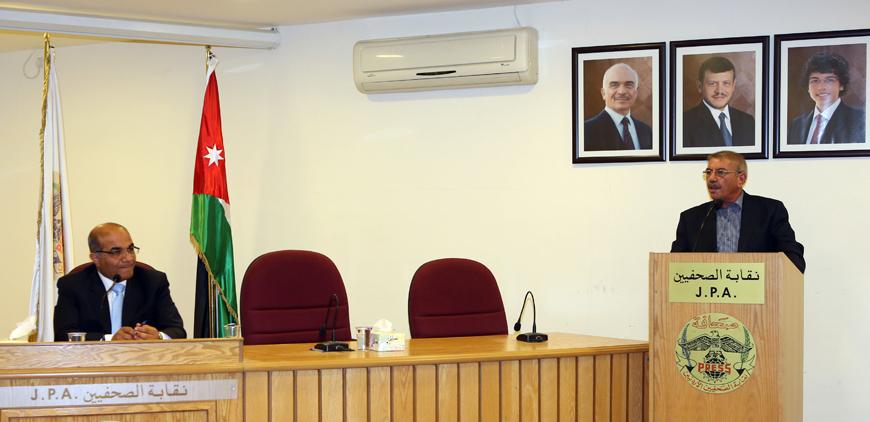You are here
Coronavirus crisis adds to Jordan’s media sector woes
By Bahaa Al Deen Al Nawas - Apr 06,2020 - Last updated at Apr 06,2020

Media professionals said on Monday that Jordan’s already-ailing media sector now faces deeper challenges, especially financial, in light of the coronavirus crisis (File photo)
AMMAN — Media professionals said on Monday that Jordan’s already-ailing media sector now faces deeper challenges, especially financial, in light of the coronavirus crisis.
President of the Centre for Defending Freedom of Journalists (CDFJ) Nidal Mansour said that the media sector’s struggle grew after the government banned printing and distributing newspapers to contain the spread of COVID-19.
“Advertisement still depends on physical newspaper rather than websites, which means that the industry will be impacted and could be completely shut-down, or media institutions might take difficult measures and decrease the number of their staff members in order to cope,” Mansuor said over the phone.
This poses a challenge that might force newspapers in particular to look beyond the coronavirus crisis to adopt business models that generate profit and ensure continuity, Mansour said.
“A discussion is taking place around the world, questioning whether media is a social right or just a business, and in many places, it was reaffirmed that the media is a social right that requires the country’s support,” Mansour said.
He explained that as the government provides support to health and education, there needs to be support to the media as well, noting that the sector needs to utilise this support and identify challenges facing it.
Media and communication specialist Bayan Tal told The Jordan Times in a phone call that “this is a critical time for the media, but also a time we can take advantage of as well.”
Tal, a senior adviser at the Jordan Media Institute, reiterated the sentiment that media entities need to adopt a new business model that adapts to the current conditions, while allowing sector employees to continue to do their work professionally.
“I see it as an advantage because it is important to become digital and go online, which we have been calling for, for a long time, and newspapers should have developed platforms online that are accessible to everyone,” Tal said, noting that many experts said that “printing will discontinue moving forward.”
Tal said she views the crisis as an advantage also because “the measures of the government and the ways it conveys the implementation of its measures in transparency and efficiency has increased the trust of the public in both the government and the media.”
“This is because the media communicates the government’s briefings and raises people’s awareness of what needs to be done during the crisis,” Tal said.
Related Articles
AMMAN — Amidst difficult financial conditions and the decline in advertising and distribution, newspapers in Jordan should focus on breathin
AMMAN — Print media was struggling even before the coronavirus crisis started but problems deepened during the three-month lockdown period w
AMMAN — Journalists on Sunday proposed the formation of a committee to identify the reasons behind the decline of print media and the financ

















